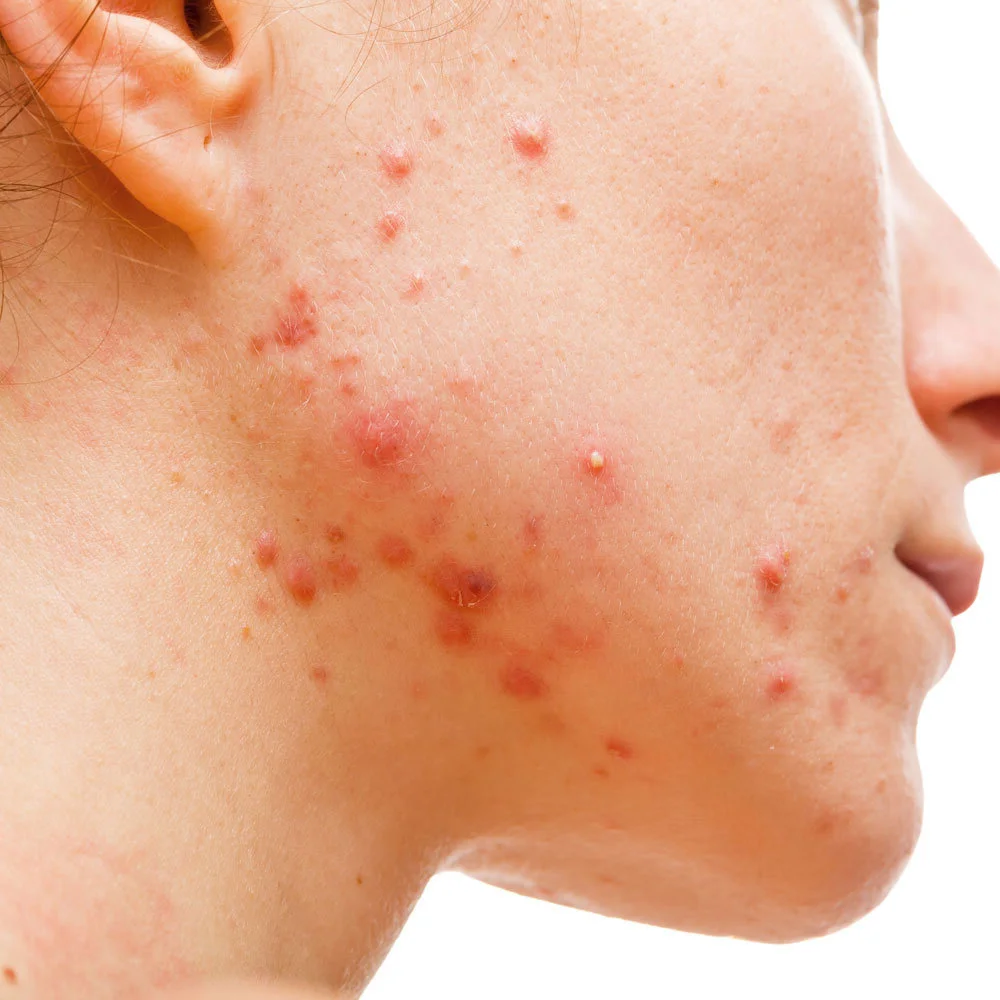Acne

Acne affects both sexes from teenage years to adulthood. In fact, acne affects 80% of the population, making it the most common skin condition in the United States. Dr. Jones herself battled cystic acne as a teenager. This experience drove her into the field of dermatology to help patients decrease the psychological burden of acne and prevent scarring.
Acne can appear on the face, neck, chest, shoulders, back, and even buttocks. The lesions themselves appear as blackheads, white heads, bumps, pustules, cysts, and nodules.
At Virginia Square Dermatology, we will take a detailed history of your lifestyle habits and previous treatments, and conduct a thorough examination to determine the type of acne you have. This will help us determine an individualized treatment plan.
Causes of acne?
Hormones (especially testosterone and progesterone) stimulating oil glands
Genetic predisposition
Dietary factors: refined sugars, skim-milk, whey protein, fatty foods
Pore-clogging factors: hair products, occlusion, friction, sweat
Overgrowth of bacteria or yeast (fungal acne)
Stress
Certain medications
Why treat acne?
The presence of acne can affect a person’s self-esteem and confidence. It has also been associated with depression and anxiety.
Additionally, untreated acne can lead to scarring, which is more difficult and expensive to treat.
Treatments of acne
The treatment of acne has to be tailored to each individual.
Lifestyle modifications
Topical washes and creams containing: salicylic acid, benzoyl peroxide, glycolic acid, retinols, sulfur sulfacetamide
Oral medications: antibiotics, spironolactone, birth control pills, isotretinoin (accutane)
Procedures: acne extractions, chemical peels, photodynamic therapy

